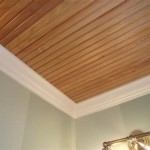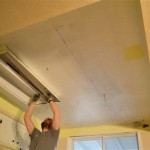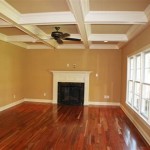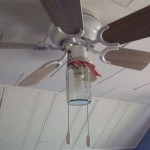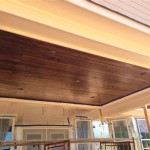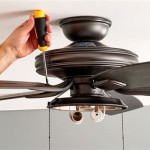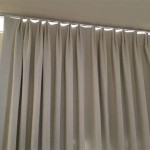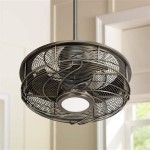What Is A Vaulted Ceiling?
A vaulted ceiling is any ceiling that is higher than the standard flat ceiling typically found in most homes. It extends upwards, creating a sense of volume and grandeur within a space. Rather than a single flat plane, a vaulted ceiling features an incline, arch, or dome. The increased height contributes to a more open, airy feel, often making a room appear larger than its actual square footage.
Vaulted ceilings come in a variety of styles, each offering a unique aesthetic. These styles can range from simple slopes to intricate, ornate designs. The chosen style often reflects the architectural style of the home and can significantly impact the overall ambiance of a room.
One common type is the
barrel vault
, also known as a tunnel vault. This style features a single continuous curve resembling half a cylinder. Barrel vaults are known for their elegant simplicity and are often found in traditional and Mediterranean-style homes.Another popular choice is the
groin vault
, formed by the intersection of two barrel vaults at a right angle. This creates four curving sections that meet at a central point, adding a touch of architectural drama to a space. Groin vaults are often found in larger rooms and hallways.A
rib vault
is a more complex variation, featuring a framework of arched ribs that support the ceiling. The spaces between the ribs are filled with lighter materials, creating a visually striking and structurally efficient design. Rib vaults are commonly associated with Gothic architecture.The
dome vault
is a spherical ceiling, resembling the inside of a hemisphere. Dome vaults are often used in grand entryways or formal living rooms to create a sense of opulence and grandeur.A
cathedral ceiling
, often confused with a vaulted ceiling, is a specific type of vaulted ceiling where the ceiling slopes upwards to follow the roofline. This creates a symmetrical, triangular shape and maximizes the height of the room. Cathedral ceilings are frequently found in great rooms and master bedrooms.A
shed ceiling
, also known as a lean-to ceiling, slopes upward in a single direction. This creates a slanted ceiling plane and is often used in attics, additions, or rooms with asymmetrical rooflines. Shed ceilings can be a cost-effective way to add height and visual interest to a space.The advantages of vaulted ceilings extend beyond aesthetics. The increased volume can improve air circulation and create a more comfortable living environment. The added height can also enhance natural light penetration, reducing the need for artificial lighting during the day.
However, it's important to consider potential drawbacks. Vaulted ceilings can make heating and cooling a space more challenging, potentially leading to higher energy bills. They can also make cleaning and maintenance more difficult due to the increased height.
The construction process for a vaulted ceiling can be more complex and costly than a standard flat ceiling. This is due to the additional structural support required and the specialized skills needed for installation. The cost will vary depending on the chosen style, size, and materials used.
Choosing the right materials for a vaulted ceiling is crucial for both aesthetics and functionality. Common materials include drywall, wood beams, and plaster. Drywall is a cost-effective and versatile option, while wood beams can add a rustic or traditional touch. Plaster offers a smooth, elegant finish but can be more expensive.
Lighting a vaulted ceiling requires careful consideration. Recessed lighting, pendant lights, and chandeliers are popular choices. The placement and type of lighting fixtures should be carefully planned to enhance the architectural features of the ceiling and provide adequate illumination for the space.
Decorating a vaulted ceiling can present unique challenges and opportunities. Painting the ceiling a lighter color than the walls can create an illusion of even greater height. Adding decorative beams or molding can enhance the architectural details. Carefully chosen artwork or decorative elements can draw the eye upwards and emphasize the grandeur of the space.
Insulation is a critical aspect of vaulted ceiling construction. Proper insulation can help regulate temperature, reduce energy costs, and improve overall comfort. The type and amount of insulation required will depend on the climate and the specific design of the ceiling.
Regular maintenance is essential to ensure the longevity and structural integrity of a vaulted ceiling. Inspections should be conducted periodically to check for any signs of damage, such as cracks, leaks, or sagging. Proper ventilation is also important to prevent moisture buildup and potential mold growth.

Vaulted Ceilings 101 The Pros Cons And Details On Installation Bob Vila

Planning A Vaulted Ceiling Everything You Need To Know Checkatrade

What Is A Vaulted Ceiling Pros And Cons Of Ceilings

Vaulted Ceilings Pros And Cons Renovations Roofing Remodeling

What Is A Vaulted Ceiling Pros And Cons Of Ceilings

Eight Benefits Of Vaulted Ceilings In A Home Georgia Remodeling

Vaulted Ceilings 101 History Pros Cons And Inspirational Examples

Differences Between Vaulted Ceilings And Cathedral

The Ultimate Guide To Vaulted Ceilings Pros Cons And Inspiration

The Ultimate Guide To Vaulted Ceilings Pros Cons And Inspiration
Related Posts

